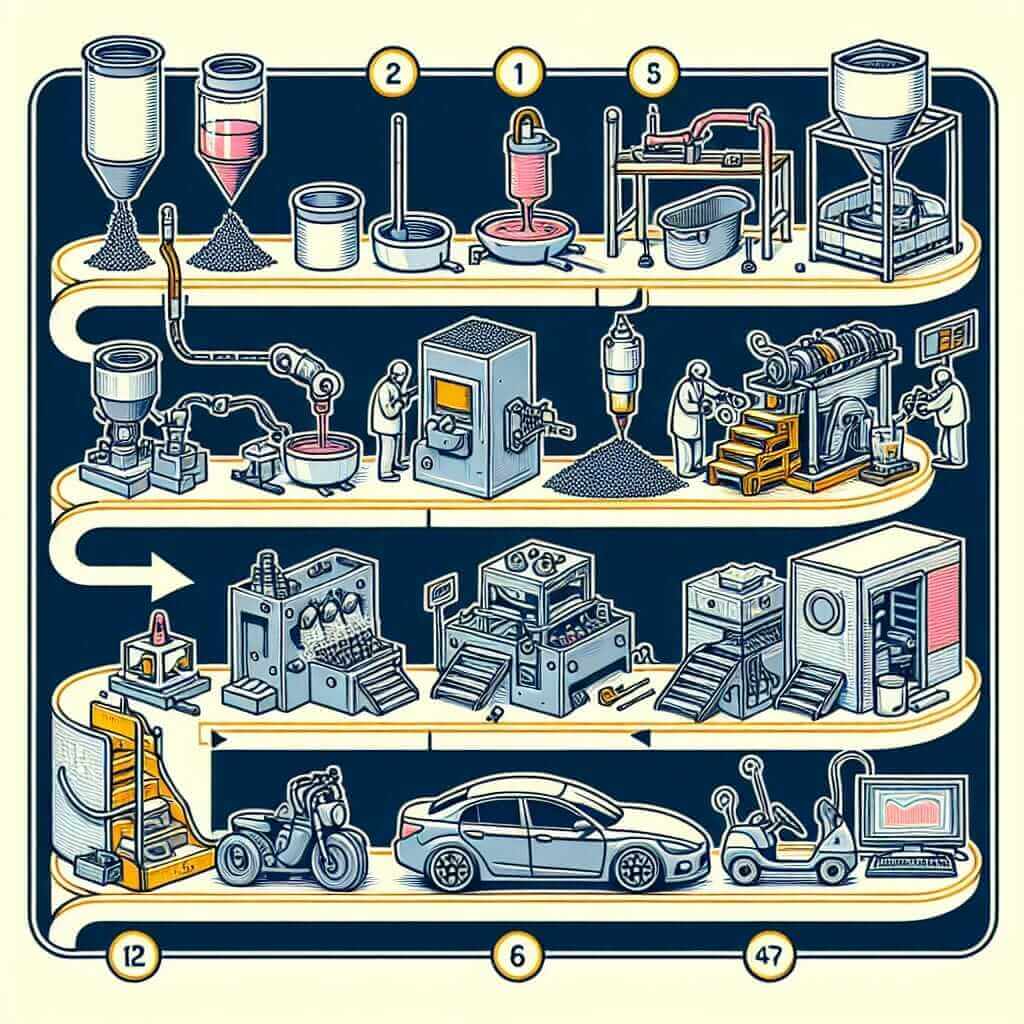As an IELTS instructor with over two decades of experience, I often encounter students perplexed by the potential appearance of topics like “manufacturing process” in the IELTS Speaking exam. While it might seem daunting at first, remember that the examiner isn’t testing your engineering knowledge. Instead, they are assessing your ability to articulate your ideas effectively and use a broad range of vocabulary related to the topic. This article will equip you with the necessary tools and strategies to confidently tackle any “manufacturing process” related questions in your IELTS Speaking test.
The Significance of “Manufacturing Process” in IELTS Speaking
The IELTS Speaking test evaluates your fluency, vocabulary, grammatical range, and pronunciation. Topics like “manufacturing process,” though seemingly specific, allow you to demonstrate these skills by:
- Utilizing Descriptive Vocabulary: Discussing a manufacturing process necessitates the use of descriptive language to explain steps, materials, and transformations.
- Exhibiting Coherence and Cohesion: You’ll need to present information logically, using linking words and discourse markers to ensure your explanation is easy to follow.
- Demonstrating Critical Thinking: You might be asked to compare traditional and modern manufacturing methods or analyze the impact of automation, showcasing your analytical abilities.
Mastering “Manufacturing Process” Vocabulary
A strong vocabulary is crucial for success in the IELTS Speaking test. Here’s how to build yours:
1. Identify Common Manufacturing Processes:
Familiarize yourself with terms describing various manufacturing processes:
- Assembly: Putting parts together
- Fabrication: Building structures from raw materials
- Molding: Shaping materials using a rigid frame
- Extrusion: Creating objects by pushing material through a die
- Automation: Using technology to control production
2. Expand Your Vocabulary:
Go beyond basic terms and include words related to:
- Materials: Metals, plastics, textiles, ceramics
- Techniques: Welding, casting, weaving, printing
- Equipment: Machinery, tools, robots
- Stages: Raw materials, processing, assembly, quality control
3. Practice Using the Vocabulary:
Incorporate these terms into your daily English practice. Describe the manufacturing process of everyday objects to build fluency and confidence.

Sample IELTS Speaking Questions and Responses
Let’s look at some potential IELTS Speaking questions related to “manufacturing process” and how you can answer them effectively:
Part 1:
- Examiner: “Do you know how anything is manufactured?”
- You: “Yes, I recently learned how smartphones are assembled. It involves sourcing components from various suppliers, followed by a precise assembly process using robotic arms and conveyor belts. It’s fascinating how technology has revolutionized manufacturing.”
Part 2:
- Describe an object you own that was made using a complex manufacturing process.
- You: “I’d like to talk about my bicycle. Its aluminum frame is created through a process called extrusion, where the metal is forced through a die to create the desired shape. The gears and chain require meticulous machining to ensure smooth operation. It’s amazing how different components are manufactured separately and then assembled to create a functioning bicycle.”
Part 3:
- Examiner: “What are the advantages and disadvantages of automation in manufacturing?”
- You: “Automation increases efficiency and precision, leading to higher output and reduced errors. However, it can lead to job displacement and requires significant investment in technology. Finding a balance between automation and human involvement is crucial for sustainable manufacturing practices.”
Tips for Success:
- Think of Real-Life Examples: Relate the topic to your own experiences. This makes your responses more natural and engaging.
- Don’t be Afraid to Speculate: If you don’t know the exact process, use phrases like “I imagine” or “It’s likely that” to demonstrate your ability to hypothesize.
- Focus on Fluency and Coherence: It’s better to use simpler language and maintain a smooth flow than to stumble over complex vocabulary.
Conclusion
Remember, the IELTS Speaking test is not about possessing expert knowledge but rather demonstrating your communication skills. By familiarizing yourself with relevant vocabulary, practicing speaking about “manufacturing processes,” and structuring your responses coherently, you can confidently approach this topic and achieve your desired IELTS score.